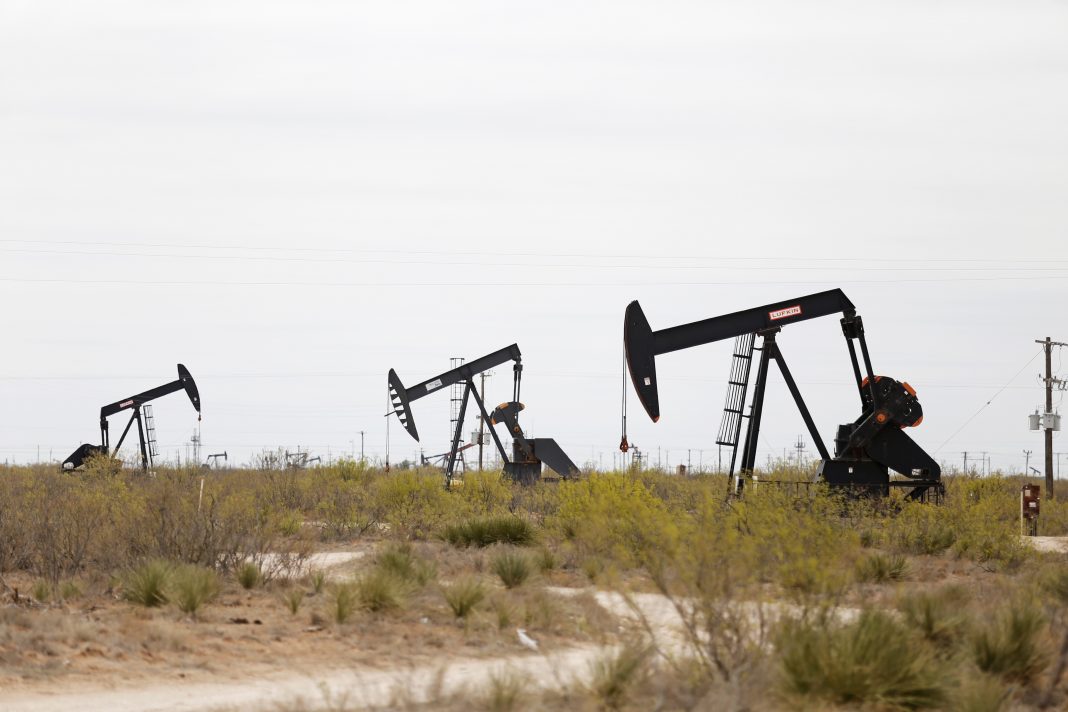With the Biden Administration and congressional Democrats gearing up to try passing a windfall profits tax on oil, U.S. Rep. August Pfluger and Texas energy groups are gearing up to stop them.
“At a time when families are suffering from record-high energy prices, President Biden is opting to tax the American energy producers that fuel our country,” Pfluger told the Odessa American Monday. “Prices will go up and families will continue to pay even more of their paychecks each month to keep the lights on. Mark this down as another Biden economic blunder that will only slow economic growth.”
The San Angelo Republican, who represents Ector County and much of the Permian Basin in the 11th Congressional District, said the solution to inflation and high gasoline and diesel prices would be to establish a more positive economic environment. “Congress should be encouraging further capital for the oil and gas sector so we can unleash America’s energy potential,” Pfluger said.
“This means rolling back regulatory barriers, expediting oil and gas infrastructure projects and unleashing energy exports from the Permian Basin.”
Texas Oil & Gas Association President Todd Staples said a windfall profits tax would only make conditions worse. “More government meddling will only hurt consumers as efforts like this drive more production out of the United States and cost jobs,” Staples said.
“If the goal is to help consumers, we need policies that encourage more supply by unleashing American energy leadership. Inflation is impacting this industry like it is every sector of the economy,” he said. “The government’s unprecedented spending during the COVID-19 pandemic contributed to the inflationary factors that consumers are suffering under today.
“It would help consumers to encourage more growth and production of U.S. oil that is produced in an environmentally responsible way.”
Texas Independent Producers & Royalty Owners Association President Ed Longanecker noted Tuesday that National Economic Council Deputy Director Bharat Ramamurti had just announced the Biden Administration’s support of the “Big Oil Windfall Profits Tax” bill filed March 10 by Democratic Congressman Ro Khanna of California and Democratic U.S. Sen. Sheldon Whitehouse of Rhode Island to tax companies producing at least 300,000 barrels of oil per day.
“We are very much open to any proposal that would provide relief to consumers at the pump,” Ramamurti said. “One thing you want to be aware of when you are looking at those types of proposals is how is it going to affect supply, as well. I don’t think that’s an insurmountable hurdle, but it is an important question at a time when there’s clearly a supply issue.”
Khanna and Whitehouse reported May 24 that 44 House and Senate Democrats had signed a letter asking House Speaker Nancy Pelosi and Senate Majority Leader Chuck Schumer to bring their bill to a vote and enact a quarterly tax equal to 50 percent of the average per-barrel price between 2015 and 2019.
Longanecker said the plan “is yet another effort in a growing list of misguided domestic energy policies that will have unintended consequences for consumers and our economy.
“As we experienced in the 1980s when a similar scheme failed, this type of tax would actually result in lower domestic production and a higher reliance on foreign sources of energy, further exacerbating the rising costs of goods and services,” he said. “The windfall profits tax enacted during the Carter administration also raised far less revenue than promised and was ultimately repealed. U.S. producers are subject to unique market factors, including extreme periods of volatility, and they have no control over the price of oil and natural gas.
“There were more than 100 oil and natural gas company bankruptcies in 2020 and U.S. producers lost tens of billions of dollars due to global demand destruction from COVID-19,” Longanecker said. “Manipulating free market principles and instituting a politically motivated windfall tax would set a dangerous precedent. Private sector growth and innovation rely on a tax code that is stable, predictable and not punitive.”




